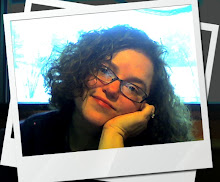 I truly believe that any education that does not involve interface with a computer these days is selling the student short.The digital world is the world we live, play, work and socialize in.And it’s not enough to be able to word-process, surf the net, send an email and play games online, you have to be able to know how to find the exact information you need, exactly when you need it.This goes way beyond a Google search, this involves thinking critically about information.The web is a universe unto itself and growing exponentially.
I truly believe that any education that does not involve interface with a computer these days is selling the student short.The digital world is the world we live, play, work and socialize in.And it’s not enough to be able to word-process, surf the net, send an email and play games online, you have to be able to know how to find the exact information you need, exactly when you need it.This goes way beyond a Google search, this involves thinking critically about information.The web is a universe unto itself and growing exponentially.Schools need to embrace it as important as reading, writing, and arithmetic.It’s as simple as that.Like reading, writing and math, each skill set in media literacy is built upon learning the last.You can specialize and submerge yourself into specific areas, but you need a fundamental background in all.Operating a computer connected to the internet is as important as learning how to drive a car, and possibly more so, since you can telecommute from home if you have a computer but no car.I found a definition of exactly what media literacy is, or should be, and offer it below:
Media Literacy is the ability to access, analyze, evaluate and create media in a variety of forms.
Definitions, however, evolve over time and a more robust definition is now needed to situate media literacy in the context of its importance for the education of students in a 21st century media culture. CML now uses this expanded definition:
Media Literacy is a 21st century approach to education. It provides a framework to access, analyze, evaluate and create messages in a variety of forms — from print to video to the Internet. Media literacy builds an understanding of the role of media in society as well as essential skills of inquiry and self-expression necessary for citizens of a democracy. (Center for Media Literacy)
The digital age, unfortunately, is causing an even further separation between us and the developing world.When we say that the internet connects the world, what we really mean is that the internet connects the developed and free world.I have a friend in Beijing, a professor, who spent several months here as a Fulbright Scholar.He opened a Facebook account before he left, to keep in touch with us as he goes back to work at his university, but he uses a pseudonym to fly beneath the radar of Chinese censorship.Although he is Chinese and wants to help move China forward, he claims that he can’t do it from within China, because its government is so stifling and corrupt.
And it is hard for my children, who are growing up in a three-TV, three-computer, two-ipod, one-Nintendo DS, one wii, and a built-in DVD player in our car- household, to understand what it could be like having to walk miles each day for drinking water, to go hungry and cold, and to not be able to read, let alone have the privilege of a public education.I’m hoping that media literacy education can help us find a way to use our media tools to help our disadvantaged brethren the world over.




No comments:
Post a Comment